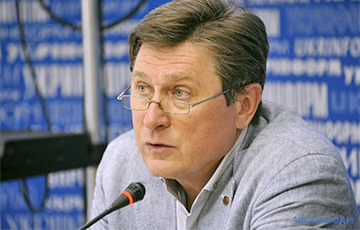Why Did Putin Start Talking About Peace?
31- Volodymyr Fesenko
- 20.05.2024, 12:55
- 32,290

PHOTO: UKRINFORM
There is a lot of conspiracy around the topic of negotiations.
Return to the topic of peace negotiations. Recently, there has been an information frenzy around the topic of peace talks at the end of the war between Ukraine and Russia. Various political statements are heard, a number of publications on this topic appear. Accordingly, conspiracy assumptions about the possibility of such negotiations are beginning to spread soon.
This is not surprising. The problem of peace negotiations is always discussed around any war. For example, this topic is also actively discussed around the current conflict in the Middle East (Israel-Palestine). The issue of a negotiated end to the war between Russia and Ukraine has arisen repeatedly since the first days of the Russian full-scale invasion of Ukraine.
The current updating of the peace talks topic is associated with two circumstances:
Preparation of the Global Peace Summit in Switzerland;
Russia's promotion of its strategy for ending the war – peace on Russian terms (demilitarization and denazification of Ukraine, prohibition of Ukraine's membership in NATO, recognition of Russia's sovereignty over the territories that Russia annexed in Ukraine, etc.).
These two circumstances, as well as the difficult situation on the fronts in Ukraine and soon presidential elections in the US, resumed the discussion in the Western political elites about the prospects of the war between Russia and Ukraine and the conditions for its ending. As it was before, different positions emerged, which is typical for democratic societies. There are supporters of peace negotiations even now, even on the terms of certain concessions to Russia. There is also a more pragmatic position – negotiations with Russia on ending the war should begin only from a position of strength when the military situation in Ukraine stabilizes, the Russian aggressor will be stopped (and even better rejected from at least part of the occupied territories) and Putin will understand that he will not be able to win this war against Ukraine. It is this position that now prevails among the Western elites. At the same time, the official position of Western leaders remains unchanged – when and under what conditions Ukraine will decide to start negotiations. This is the position announced recently in Kyiv by US Secretary of State Antony Blinken.
The discussion about the end of the war through peaceful talks should be treated calmly and rationally. In the future, negotiations on the end of hostilities between Russia and Ukraine are inevitable, even if we manage to liberate all the occupied territories. And we need to think it over and determine the strategy and tactics of such talks.
Discussions and statements about peace talks to end the war between Russia and Ukraine reflect the intensification of the information, political and diplomatic struggle around the Global Peace Summit in Switzerland. Therefore, this is a real process, not an annoying sidelight.
This is an open and hidden struggle of two strategies – Ukrainian (together with our international partners) and Russian. The Ukrainian strategy is for the international community (at least a significant part of it) to determine a common position for future peace talks, taking into account the peace formula of President Zelensky. This is why the Global Peace Summit is being held. This will definitely strengthen our potential negotiating positions. Therefore, Russia is so insane and is trying to disrupt this summit or at least level its significance and possible solutions. Russia's strategy is exactly the opposite – to force Ukraine and the West to negotiate on their own terms by escalating the war against Ukraine. What should also be understood is that Russia does not seek to freeze the current war (that is, simply the cessation of hostilities), but wants a full-fledged peace agreement, which will fix the fundamental concessions to Ukraine. It is clear that such peace talks on Russian terms are unacceptable for us, as well as for most of our international partners.
What's next? The war will go on. The fate of the upcoming peace talks will be decided primarily on the battlefield. However, in parallel, there will be attempts to start peace talks.
If a common document is agreed at the Global Peace Summit in Switzerland as a proposal for the upcoming peace talks, it will be handed over to the Russian side. With a high probability, Russia will not agree with the proposals of the Global Peace Summit, because it will promote its positions. But consultations may begin, most likely in a closed mode, possibly informally, on what conditions, with what agenda and in what format peace talks on ending the war between Russia and Ukraine may take place in the future. It is possible that China, perhaps together with Russia, will try to hold a "peace conference", to which Ukraine will also be invited. But if the Russian position dominates there, it will be inappropriate for Ukraine to participate in such an event. If Trump wins the US presidential election, he is highly likely to initiate peace negotiations to end the war between Russia and Ukraine. Trump does not yet have a realistic plan for ending this war, but he will likely demand concessions from both Ukraine and Russia, which the Kremlin may not accept. Likely, Trump can also offer a scenario for "freezing" the war, that is, simply signing an agreement on the cessation of hostilities. But all this is just a guess.
Anyway, real peace talks may be relevant, most likely, even after 2025. However, even then, their possibility will depend on the course and results of hostilities.
Volodymyr Fesenko, Facebook









